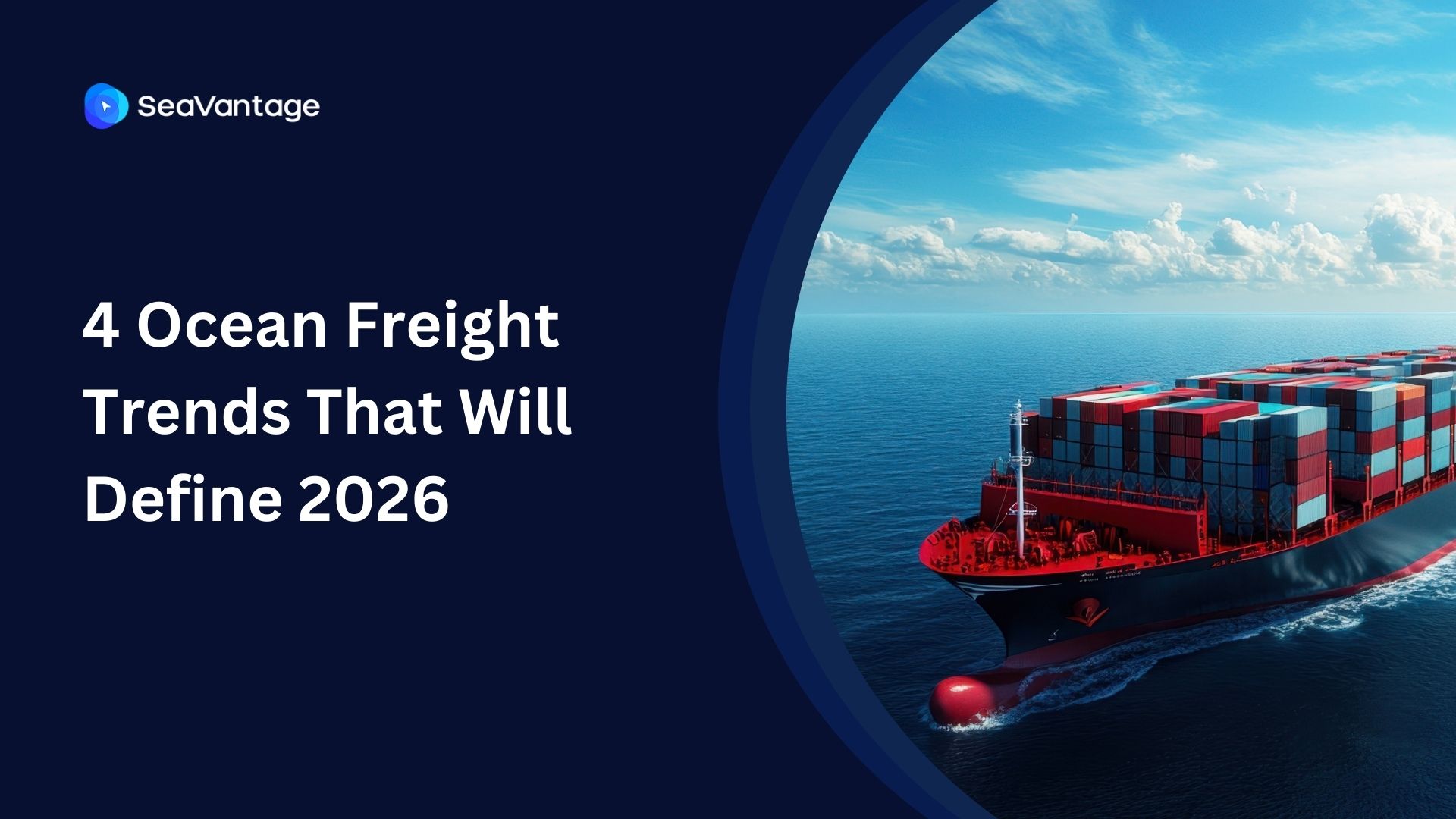ETA in Shipping: More Than Just an Acronym

There aren't too many abbreviations in global supply chains as important as the ETA, or Estimated Time of Arrival. From awaiting a parcel, to managing cargo for any organization, it's all about ETA. It is interesting to note how such a simple acronym keeps this rhythm of international trade going on.
Why ETA Actually Matters More Than You Think
ETA is not just a number; it's a promise. Each link in the supply chain depends on true timing to stay connected. Visualize a factory waiting for materials-without an accurate ETA, there could be a halt in production, whereby much precious time and money would be blown. Even your morning coffee could be late if the beans weren't there on time!
For businesses, ETAs allow better planning and happier customers. By knowing when the goods will finally arrive, one can schedule labor, manage storage, and thus plan deliveries. That's like having a friend text an ETA to you so you know exactly when to prepare. Without that, it's all a game of guesswork, and nobody likes to get surprised when deadlines are pressing.
How Technology is Enhancing ETA Predictions
Gone are those days of 'guesstimation' over ETAs. With better technology in hands, ETAs have gotten smart and wiser. Along with GPS tracking, AI algorithms, and real-time data analysis in place, working out ETAs is rather easy even in very precarious situations. A cargo ship may well be out into very heavy storms; it would still manage to give out the revised ETAs to enable real-time adjustments in business operations.
You probably have seen this whenever food delivery applications show the way and all the turns the driver is taking. The same technology disrupts global logistics. Companies, in a similar vein, use systems to track containers in their journeys across oceans to avoid downtimes and surprises.
The Ripple Effect of an Accurate ETA
An accurate ETA is not only within the interest of the shipping company; it sets the tone for the whole supply chain. A late shipment may disrupt everything down the line: truckers may have to change their schedules, warehouses may have staffing disruptions, and retailers might have stockouts. On the other hand, good ETAs prevent that kind of disruption and keep the whole ecosystem in tune.
If suppliers can prepare for arrivals, there will be fewer bottlenecks at the ports of entry and distribution centers. Truck drivers can route more effectively, and retailers will have full shelves to please customers without suffering losses. These little efficiencies are economy-saving and cut down on waste. And let's be frank here-nobody likes to deal with spoiled produce or outdated stock.
Why customers love a clear ETA
We have all been there: sitting, refreshing a tracking page, waiting for a package. Precise ETAs ease that anxiety at each turn by way of keeping customers in the loop. To business, clear ETAs build trust. When customers know with complete clarity when an order will arrive, they are far more likely to stick with a company in the future.
Transparency is key, and updating ETAs with regard to waiting customers is very important as a way of showing respect to the customers. A precise ETA sometimes makes or breaks experiences in these instant-gratification times. That's literally the best way to say, "We hear your needs, and we gotcha.".
ETA: unsung hero of the supply chain
The ETA may not be sexy, but the grease keeps the supply chain fluid without bumping and grinding. It's of utmost importance, from fresh produce to factory production schedules. Take that away, and the world supply chain is thrown into one big guessing game in anarchy.
The next time you see an ETA, just realize how much technology and strategizing went into that little abbreviation: advanced systems, real-time tracking, careful coordination-all these come into play so your goods can arrive on time. In this world of logistics, timing is literally everything.
SeaVantage PTA: Re-Thinking ETA into Perfection
At SeaVantage, we’ve taken ETA predictions to the next level with our PTA (Predicted Time of Arrival) technology. Unlike traditional ETA systems that rely on past trends or best guesses, our PTA leverages cutting-edge AI algorithms, real-time data, and a robust Maritime Traffic Network (MTN). By factoring in weather patterns, traffic conditions, and even port congestion, SeaVantage’s PTA provides unmatched accuracy for arrival times.
What that means for customers is less surprise and better planning. Consider a logistics manager who gets an advanced forecast in days that a shipment will be delayed due to a potential storm. With PTA, he would have been able to adjust the schedules proactively, reroute deliveries, and refresh timelines with stakeholders. It would have saved him at least hours and dollars, besides keeping the supply chain running without glitches.
Our customers have seen significant improvements in efficiency and customer satisfaction. From avoiding costly delays to optimizing operations, SeaVantage’s PTA technology is transforming how businesses navigate the challenges of modern logistics. PTA ensures you’re always one step ahead in a world where timing is everything.
.png)
Find smarter predictions with SeaVantage.
Want to control your supply chain down to the minute? Learn how SeaVantage's PTA technology is changing how logistics operators serve their customers. Fighting against the elements, route optimization- our tools arm them with the critical information that keeps shipments on time and customers satisfied.
2025년 9월, 주요 글로벌 항만에서 어떤 운송사가 가장 긴 선박 체류 시간을 기록했는지 확인해보세요. 트렌드를 비교하고, 지연을 파악하며, 전체 항만 데이터를 통해 운송 전략을 최적화할 수 있습니다.
2025년 8월, 주요 글로벌 항만에서 어떤 운송사가 가장 긴 선박 체류 시간을 기록했는지 확인해보세요. 트렌드를 비교하고, 지연을 파악하며, 전체 항만 데이터를 통해 운송 전략을 최적화할 수 있습니다.
2025년 7월, 주요 글로벌 항만에서 어떤 운송사가 가장 긴 선박 체류 시간을 기록했는지 확인해보세요. 트렌드를 비교하고, 지연을 파악하며, 전체 항만 데이터를 통해 운송 전략을 최적화할 수 있습니다.
Explore how tariffs, blank sailings, port congestion, and canal disruptions reshaped global ocean shipping in 2025 — and what supply chain leaders must do next.
Is your ocean supply chain ready for 2026? Discover 4 critical trends, from weather disruptions to strategic booking, and how to adapt.
iscover the 4 critical ocean freight trends for 2026, from the Red Sea reopening and fleet overcapacity to shifting global trade maps. Prepare your supply chain now.



.svg)







.png)